New Scientist covers the latest developments in science and technology that will impact your world. New Scientist employs and commissions the best writers in their fields from all over the world. Our editorial team provide cutting-edge news, award-winning features and reports, written in concise and clear language that puts discoveries and advances in the context of everyday life today and in the future.
Elsewhere on New Scientist
A harmful divide • Ending medical science’s enduring neglect of women’s health must be accelerated
New Scientist
Japan’s earthquake devastation
Set a virus to catch a virus • A virus engineered using CRISPR technology spread its DNA to other viruses in a mouse study, which could be used to make pathogens harmless, finds Michael Le Page
Monkeys in Thailand took up stone tools when covid-19 stopped tourism
Radio bursts from space exhibit ‘sad trombone’ effect
Home-use headset eases depression • Brain-zapping device relieves symptoms as well as antidepressants do
Microbes identified that give cheddar its distinct flavour
Dead satellites seed upper atmosphere with bits of metal
People’s ‘speed of sight’ varies and this may explain sporting prowess
A harmless way to keep sharks away from beaches
AI discovers new class of antibiotics to kill resistant bacteria
Much of North America may face electricity shortages starting in 2024
Aloe vera plants turned into supercapacitors
We are now more certain about quantum uncertainty
AI learns to recognise objects quickly like a chick
The pandemic aged children’s brains • Adolescent brains changed faster during covid-19 lockdowns, and the effect was bigger in girls
Probiotics seem to reduce long covid symptoms
Game of Life mystery is solved • Mathematicians have found a solution to a problem that has puzzled them for decades
Swimming together lets fish expend much less energy
Springs made from rusty glass could power nanorobots
Google wants to translate physical problems for quantum computers
Hurricane damage to forests could release huge carbon stores
Dark stars may be waiting inside a mirror universe
Slow arms make a tumble more likely
All snowflakes fall in the same way
Chimpanzees recognise photos of their old friends
Really brief
Go with the flow • Our view of time has changed as we have learned more about the vast span of the cosmic calendar. Yet it is still precious, says Martin Rees
Artificially intelligent • Robotic lab techs Autonomous labs can perform experiments thousands of times faster than a human and they don’t need to sleep. Are they the future, asks Alex Wilkins
Toothsome find
Your letters
Dark sky at night… • At a novel sci-art festival celebrating the many cultural and scientific needs for dark skies in a time of serious light pollution, Alex Wilkins looks for hope
Order and disorder • It’s time we fell in love with thermodynamics, says Karmela Padavic-Callaghan
New Scientist recommends
The film column • New Year, new apocalypse From a thriller set on the International Space Station to Nicolas Cage reeling from monsters, end days are everywhere. Luckily, 2024 also has some cracking blockbusters and intriguing independent features, says Simon Ings
Fire in the hole! • As well as making history, the first attempt to explore a magma chamber could pave the way to unlimited clean energy, says Graham Lawton
Ready to blow • Neutrinos from the next nearby supernova could explode our best model of particle physics – if we are ready to detect them, says Stuart Clark
Will we be ready for the next nearby supernova?
Anxious times...

 May 24 2025
May 24 2025
 May 17 2025
May 17 2025
 May 10 2025
May 10 2025
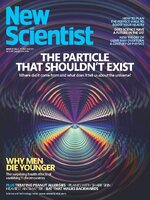 May 03 2025
May 03 2025
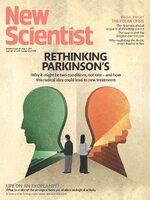 Apr 26 2025
Apr 26 2025
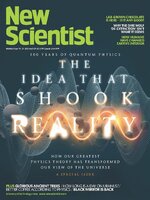 Apr 19 2025
Apr 19 2025
 Apr 12 2025
Apr 12 2025
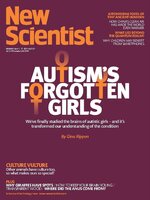 Apr 05 2025
Apr 05 2025
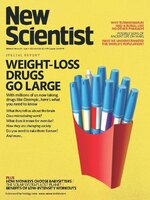 Mar 29 2025
Mar 29 2025
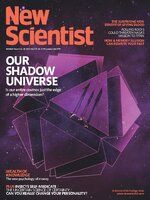 Mar 22 2025
Mar 22 2025
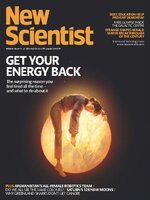 Mar 15 2025
Mar 15 2025
 Mar 08 2025
Mar 08 2025
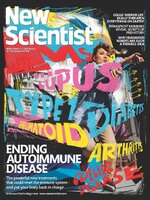 Mar 01 2025
Mar 01 2025
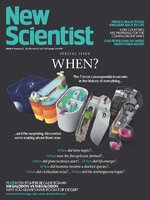 Feb 22 2025
Feb 22 2025
 Feb 15 2025
Feb 15 2025
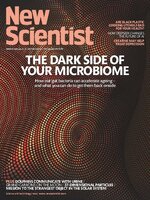 Feb 08 2025
Feb 08 2025
 Feb 01 2025
Feb 01 2025
 Jan 25 2025
Jan 25 2025
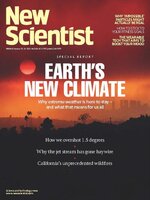 Jan 18 2025
Jan 18 2025
 Jan 11 2025
Jan 11 2025
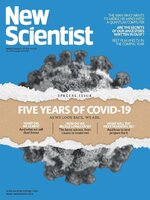 Jan 04 2025
Jan 04 2025
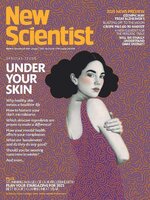 Dec 28 2024
Dec 28 2024
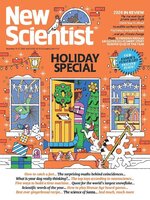 Dec 14 2024
Dec 14 2024
 Dec 07 2024
Dec 07 2024